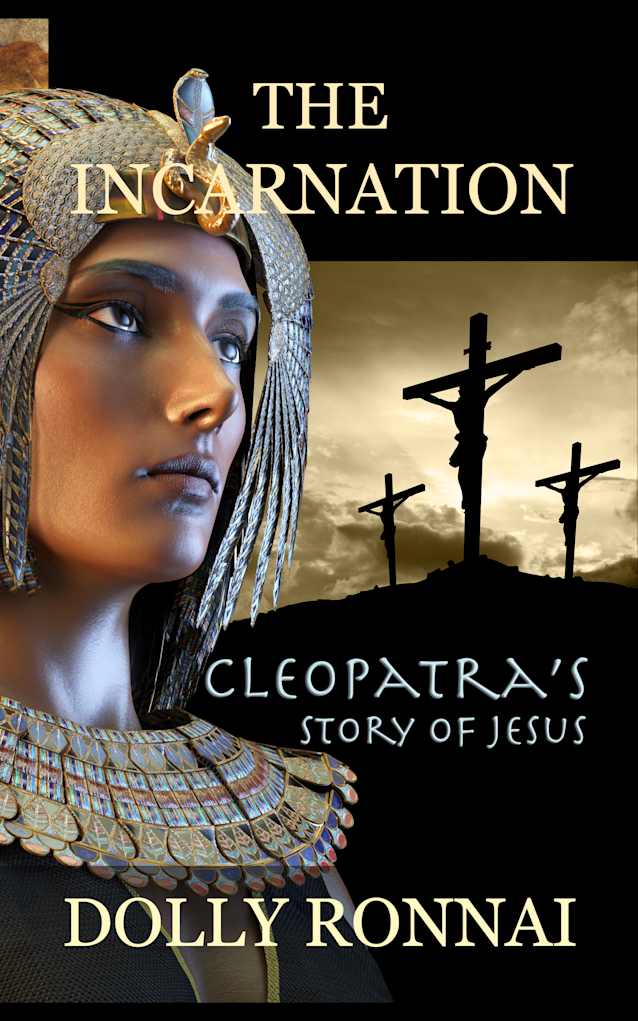The Incarnation: Cleopatra’s Story of Jesus
About
What if one of history’s most enigmatic women held the key to Christianity’s greatest mystery?
The Incarnation: Cleopatra’s Story of Jesus dares to ask that question and offers a profound, visionary answer. Bridging the worlds of history, spirituality, and esoteric wisdom, this extraordinary work reimagines the life and mission of Jesus through the eyes of Cleopatra and the cycle of incarnational memory.
Drawing from inner psychic sources, the Seth material, and deep textual analysis of Paul’s Journeys, the narrative reconstructs early Christianity not as a fixed doctrine, but as a living dialogue shaped by voices long suppressed. Cleopatra emerges not merely as a queen of Egypt, but as a spiritual witness whose perspective reframes the crucifixion, the resurrection, and the eternal question of divine incarnation.
At once bold and meticulously considered, this book stands in conversation with the groundbreaking insights of Elaine Pagels, the dramatic storytelling of Dan Brown, and the critical rigor of Bart Ehrman. Yet it goes further blurring the line between history and mystical revelation, offering readers an invitation to see the Christian story not as a closed canon, but as an open, ongoing revelation of spirit.
Inside you will discover:
- Cleopatra’s unexpected role in the unfolding of sacred history.
- Revelations from the Seth material, channeling perspectives beyond the ordinary.
- A scholarly re framing of Paul’s letters and journeys, challenging traditional readings.
- An alternative vision of the crucifixion, exposing hidden dimensions of sacrifice and resurrection.
- A tapestry of narrative, philosophy, and mystical insight that binds past, present, and future.
For Christians curious about early church history, this book offers a chance to rediscover faith’s origins through fresh eyes. For spiritual seekers, it opens a door into the deeper mysteries of incarnation, soul, and divine truth. For scholars, it presents a provocative engagement with history, language, and theology. And for lovers of visionary historical fiction, it is a story that inspires wonder as much as it challenges belief.
Author Arthur Telling, writing also as Dolly Ronnai, brings to this work not only years of research but the lived perspective of incarnational exploration. His voice bridges the scholarly and the mystical, offering readers a rare synthesis: a text both rigorously grounded and spiritually expansive.
The Incarnation is not simply a retelling of the gospel story. It is a spiritual journey, a philosophical challenge, and a historical revelation. It dares to ask: what if the truths of Christianity are larger, deeper, and more mysterious than we have ever imagined?
Step into this re envisioned gospel. Enter Cleopatra’s testimony. Confront Paul’s letters anew. And discover a crucifixion that is not an ending, but a beginning.
For readers seeking the intersection of faith and mystery, history and revelation, The Incarnation: Cleopatra’s Story of Jesus is a book that will not only captivate your imagination, but forever change how you see the story of Jesus.
Trailer
Praise for this book
Review of The Incarnation
[Following is a volunteer review of "The Incarnation" by Arthur Telling.]
The Incarnation is a historical novel written by Arthur Telling and that tells an entirely different story of Jesus Christ. The Incarnation is inspired by the canonical biblical texts.
This novel gives us a totally different point of view on Christian dogma and makes us wonder about a lot of existential issues.
First of all, we meet the apostle Paul, who is a Jew and a Roman citizen. He never met Jesus, but he is one of the founding fathers of the first Christian churches. Sometimes we realize that the apostle Paul defends a thesis, but then we realize that he defends the absolute opposite of that. He is such a controversial character that at some point I was not sure if I should consider Paul a genuine person or a charlatan. For example, for the apostle Paul, the physical crucifixion of Jesus Christ was not an important issue at all.
Then, by reading the book, we ask ourselves, Was Jesus really crucified? In the minds of many, he indeed was. If so, the narrative is a vehicle for delivering a message, and the narrative isn't important. That makes us wonder if the truth is something without importance. Truth be told, we’ll never know where the truth lies. And that’s not fair to say that it’s an exclusively Christian problem. All religions based on people who lived hundreds of years ago have the same contradictions. On the other hand, this vision allows us to be more tolerant about religion. If we can’t rigorously say what happened a hundred years ago, we’ll have to be more flexible by accepting religion's contradictions and not accepting any religious dogmas. If we see religion from this perspective, we’ll be more understanding.
I really found nothing to dislike.I rate this book, The Incarnation, five out of five stars. The book is exceptionally well edited, and I found no errors while reading it. I recommend the book to Christians who don't believe in the fundamental and absolute truth of the Bible.
